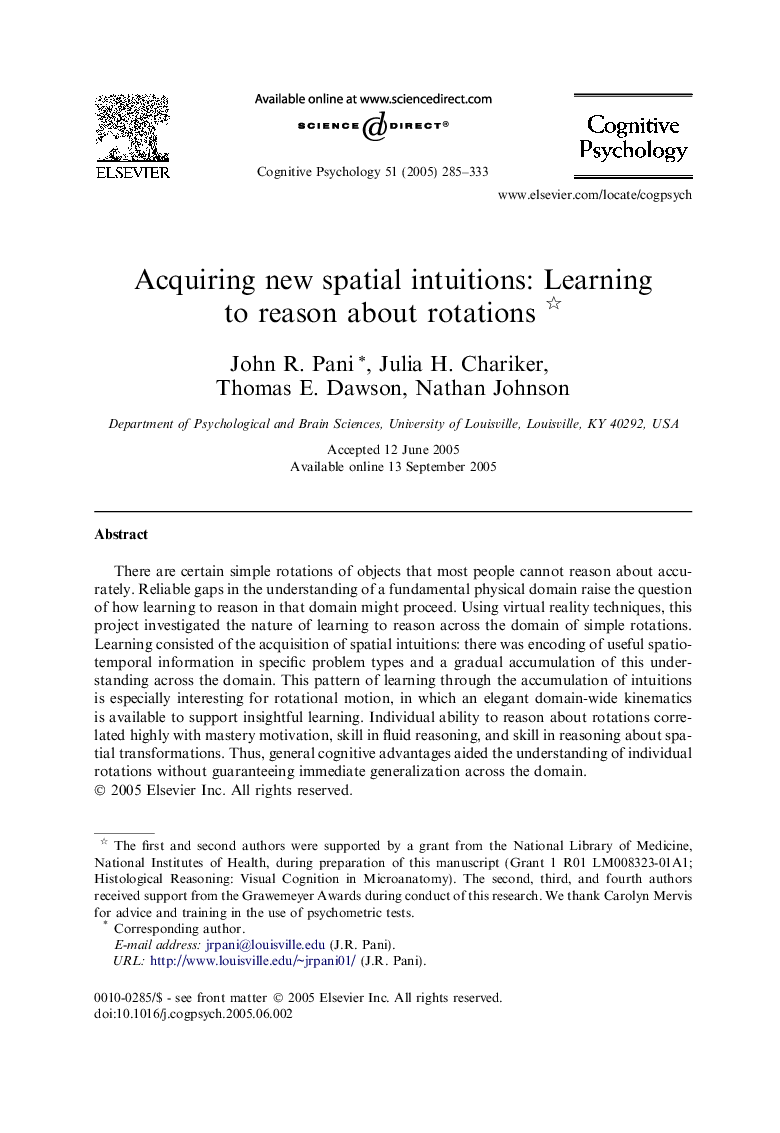| Article ID | Journal | Published Year | Pages | File Type |
|---|---|---|---|---|
| 10452451 | Cognitive Psychology | 2005 | 49 Pages |
Abstract
There are certain simple rotations of objects that most people cannot reason about accurately. Reliable gaps in the understanding of a fundamental physical domain raise the question of how learning to reason in that domain might proceed. Using virtual reality techniques, this project investigated the nature of learning to reason across the domain of simple rotations. Learning consisted of the acquisition of spatial intuitions: there was encoding of useful spatiotemporal information in specific problem types and a gradual accumulation of this understanding across the domain. This pattern of learning through the accumulation of intuitions is especially interesting for rotational motion, in which an elegant domain-wide kinematics is available to support insightful learning. Individual ability to reason about rotations correlated highly with mastery motivation, skill in fluid reasoning, and skill in reasoning about spatial transformations. Thus, general cognitive advantages aided the understanding of individual rotations without guaranteeing immediate generalization across the domain.
Keywords
Related Topics
Life Sciences
Neuroscience
Cognitive Neuroscience
Authors
John R. Pani, Julia H. Chariker, Thomas E. Dawson, Nathan Johnson,
